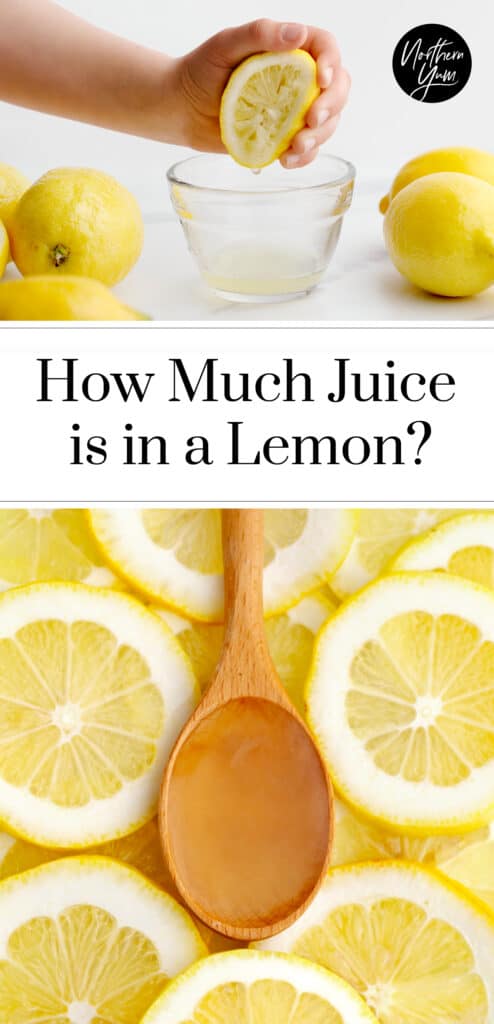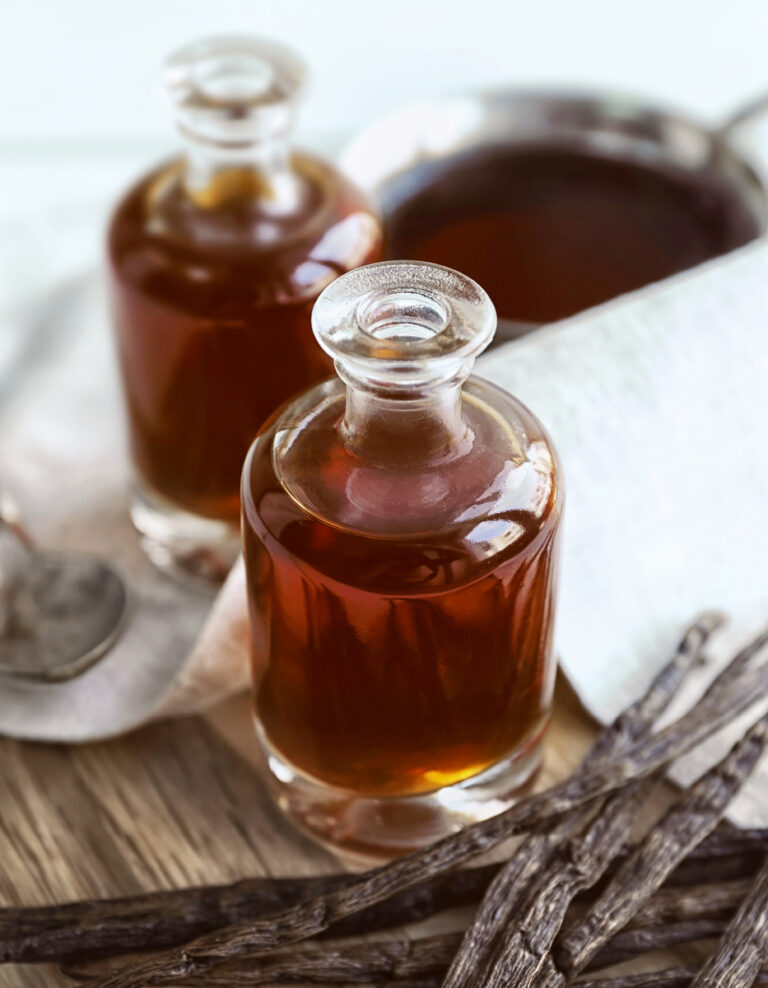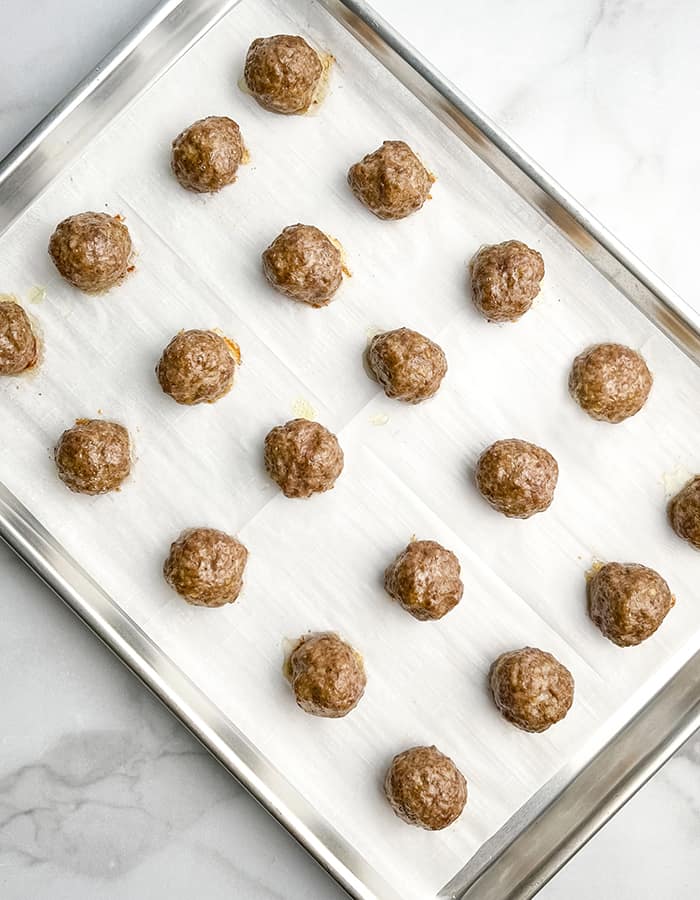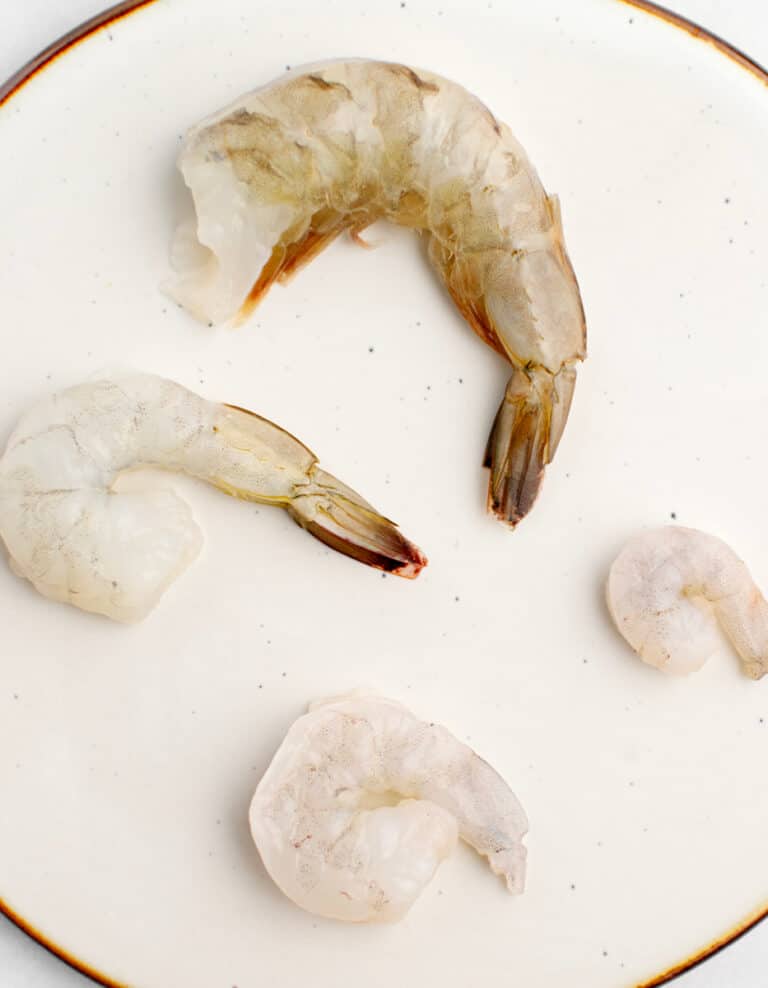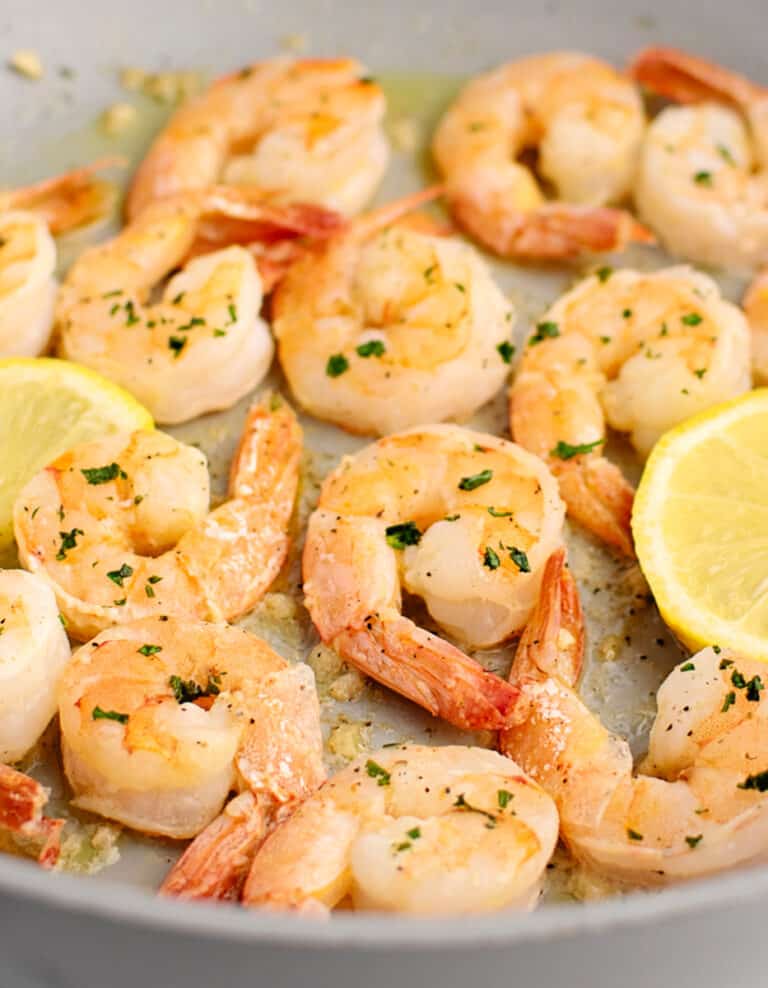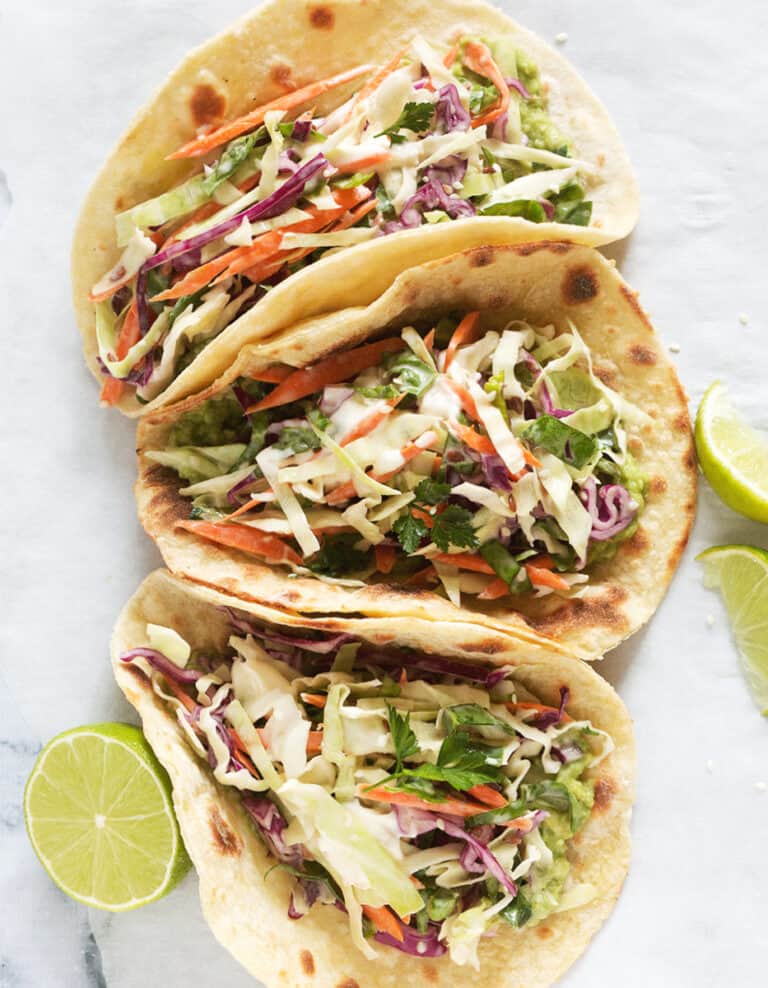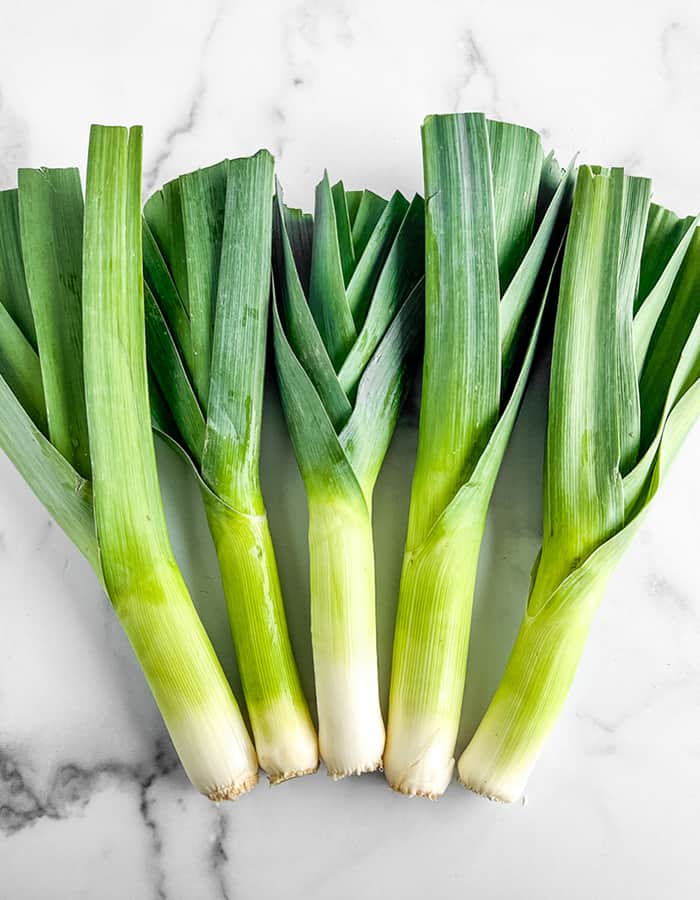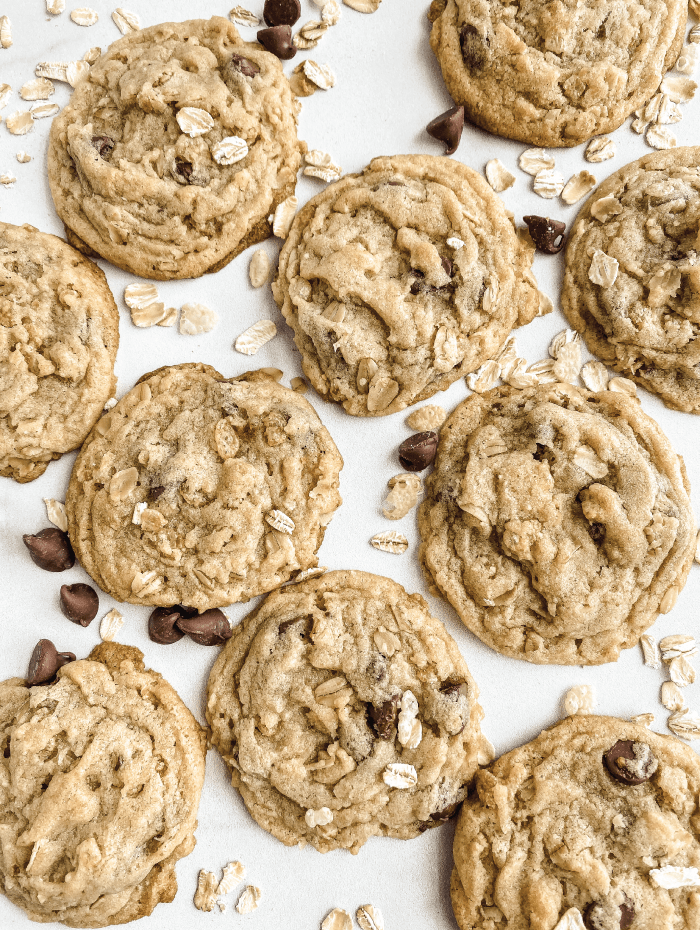A simple guide to converting whole lemons to the amount of lemon juice or zest they will yield—for use in delicious lemon recipes.
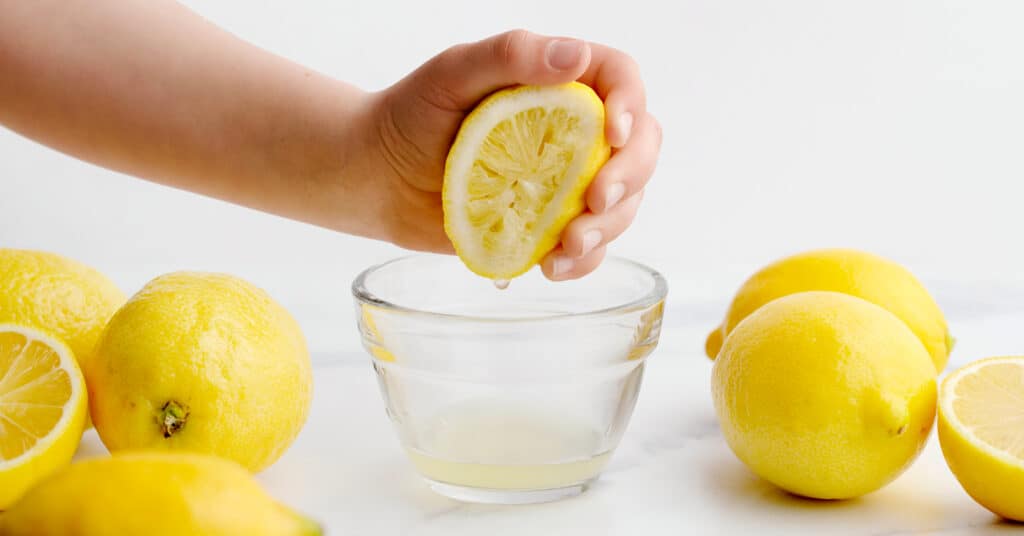
Lemons are like the superheroes of the kitchen. They can be used in so many ways to make food taste even better. Their tangy and acidic flavor can add depth to various dishes – from appetizers to main courses and desserts.
Find What You’re Looking for:
Lemon juice is a popular ingredient in dressings, marinades, and sauces, adding a zesty touch to any dish. But how much juice can you get from just one lemon? Let’s find out!
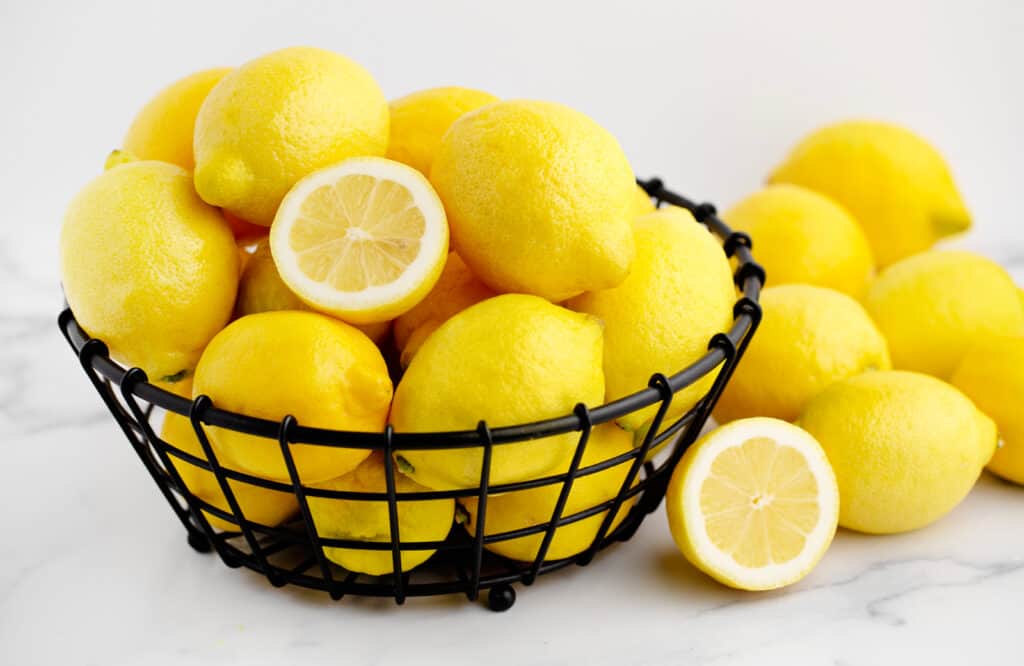
How Much Juice in One Lemon
A recipe may call for the juice of one lemon, but what if you only have bottled lemon juice on hand? How many tablespoons should you use?
On average, one large lemon will produce about 4 to 5 tablespoons of juice. Some lemons may contain more or less depending on their size and ripeness.
- Size matters – the larger the lemon, the more juice it will have.
- Ripeness – riper lemons tend to be juicier than firmer ones—you can tell if a lemon is ripe by squeezing it gently; if it yields to pressure, it’s ready for juicing!
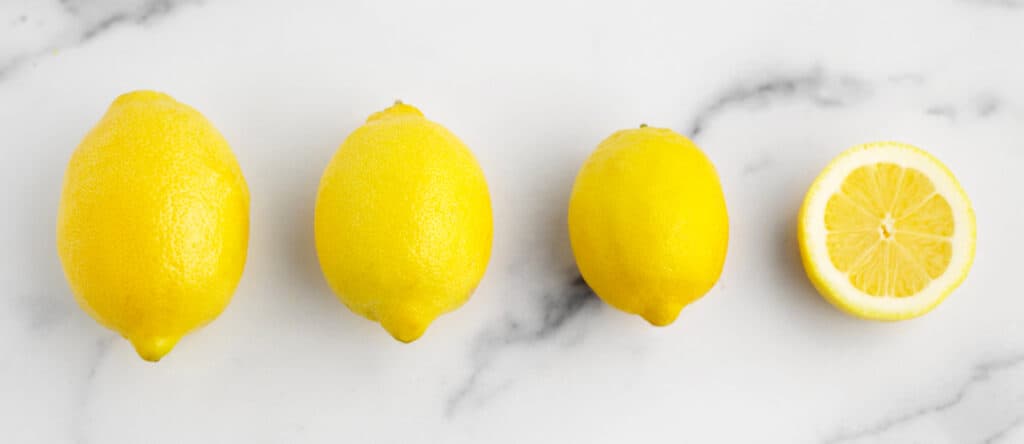
Whole Lemons to Lemon Juice Chart
Here is a quick reference chart for converting whole lemons to juice or zest.
| Juice (TBSP) | Juice (Ounces) | Juice (Cups) | Zest (TBSP) | |
|---|---|---|---|---|
| Large Lemon (2-3/8″ diameter) | 4 – 5 tbsp | 2 – 2.5 oz. | 1/4 cup | 1 tbsp |
| Medium Lemon (2-1/8″ diameter) | 3 – 4 tbsp | 1.5 – 2 oz. | 3/16 cup | 2 – 3 tsp |
| Small Lemon (1-5/8″ diameter) | 2 – 3 tbsp | 1 – 1.5 oz. | 1/8 cup | 1 – 2 tsp |
| Half Lemon | 1 – 2.5 tbsp | 0.5 – 1 oz. | 1/16 cup | 0.5 – 1.5 tsp |
Source: juice, zest, and fruit sizes from USDA – Food Data Central + our experience.
If a recipe calls for the juice of one lemon and doesn’t specify the size, you should use 3 to 5 tablespoons of fresh or bottled lemon juice. If a recipe calls for the zest of one lemon, you should use about 2 to 3 teaspoons of lemon zest.
🥛 Reference how many ounces are in a cup here.
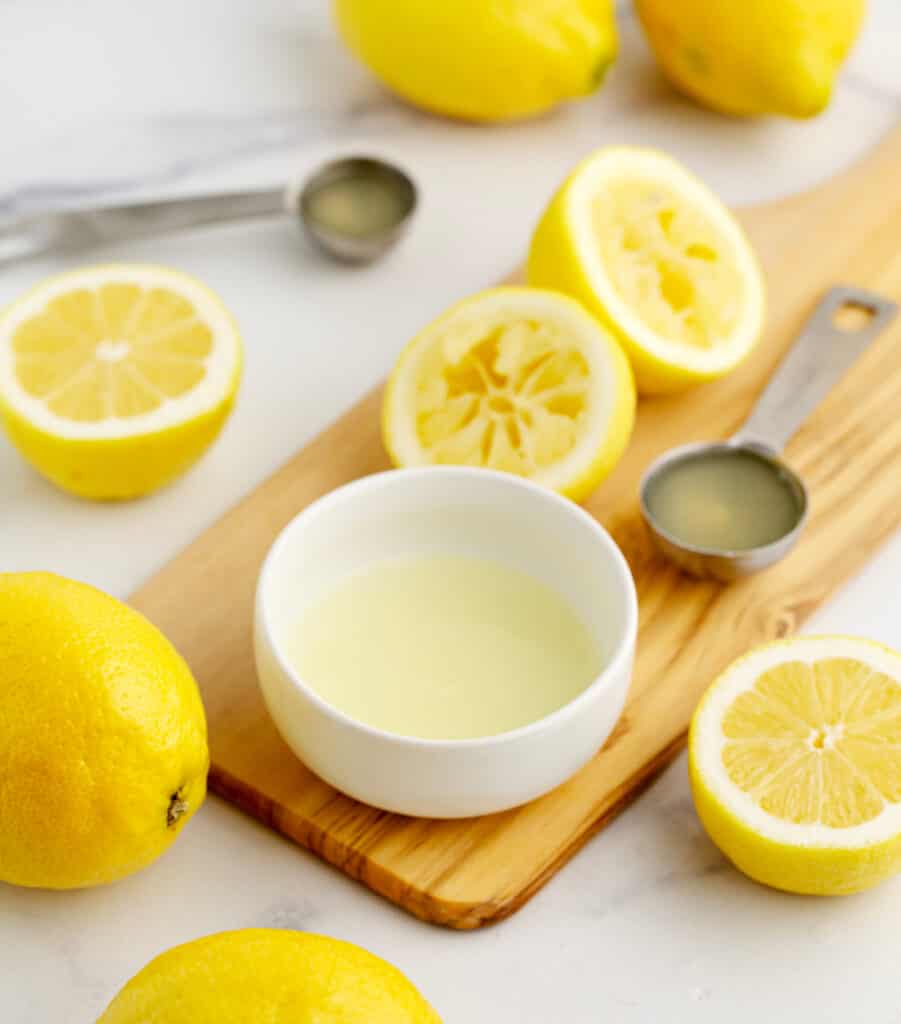
How Much Juice in One Large Lemon
A large lemon yields around 4 to 5 tablespoons of juice (2 to 2.5 ounces or 1/4 cup).
Large Lemon (avg. 2-3/8″ diameter) = 4 to 5 Tablespoons Juice
Remember: this amount can vary slightly depending on the size and ripeness of the lemon.
How Much Juice in One Medium Lemon
One medium-sized lemon equals around 3 to 4 tablespoons of juice (1.5 to 2 ounces).
Medium Lemon (avg. 2-1/8″ diameter) = 3 to 4 Tablespoons Juice
Remember: this amount can vary slightly depending on the size and ripeness of the lemon.
How Much Juice in One Small Lemon
One small-sized lemon usually contains around 2 to 3 tablespoons of juice (1 to 1.5 ounces or 1/8 cup).
Small Lemon (avg. 1-5/8″ diameter) = 2 to 3 Tablespoons Juice
Remember: this amount can vary slightly depending on the size and ripeness of the lemon.
🍋 Learn more about lemons varieties, sizing, and grading here from USFoods.com.
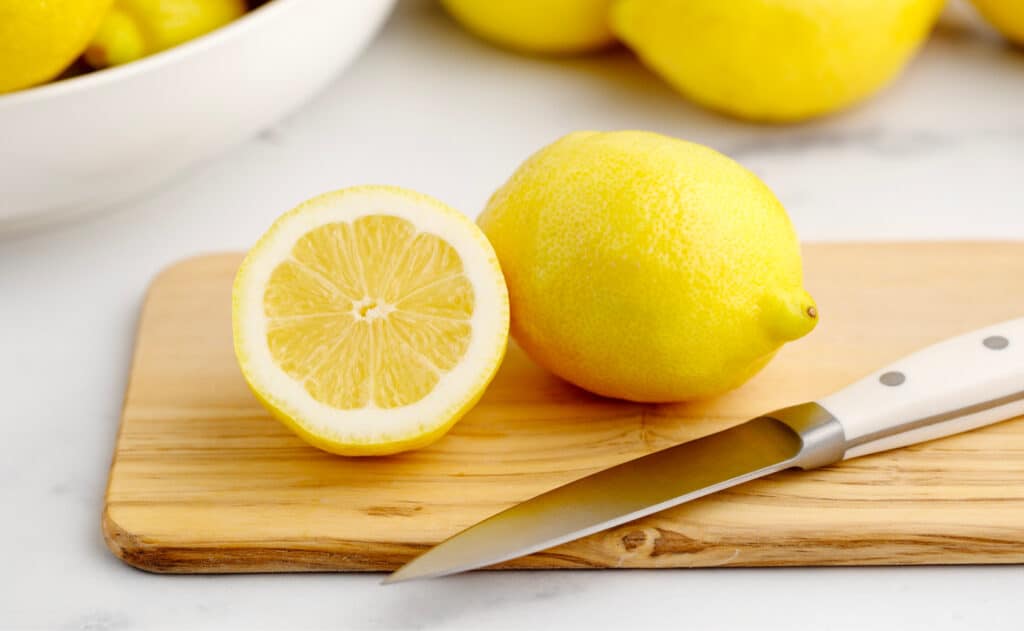
How Much Juice in One Half Lemon
A half of a lemon typically contains 1 to 2 ½ tablespoons of juice. This range accounts for half of a small lemon producing 1 tablespoon and half of a large lemon producing 2 ½ tablespoons.
Half Lemon = 1 to 2 ½ Tablespoons Juice
Remember: this amount can vary slightly depending on the size and ripeness of the lemon.
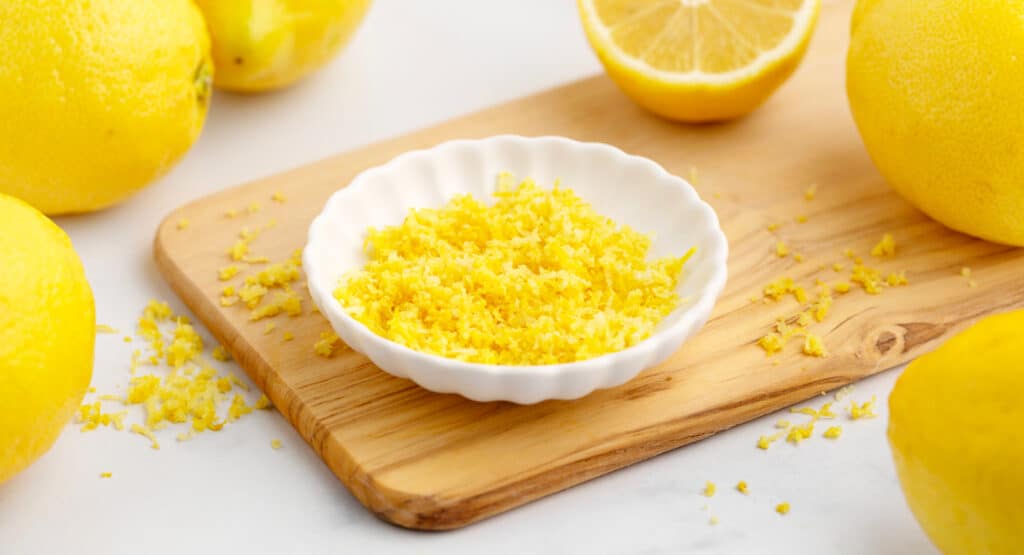
How Much Lemon Zest in One Lemon
The amount of lemon zest you get from one lemon can vary greatly depending on the size and variety and how finely you grate the zest. Generally, one large-sized lemon will yield about 1 tablespoon of freshly grated zest. One medium-sized lemon will yield approximately 2 to 3 teaspoons.
- Large lemon – 1 tablespoon zest
- Medium lemon – 2 to 3 teaspoons zest
- Small lemon – 2 teaspoons zest
- Half lemon – ½ to 1 ½ teaspoons zest
Favorite Tools for Juicing and Zesting Lemons
- Electric juicer
- Hand held juicer
- Lemon zester and grater
Is Bottled Lemon Juice the Same as Freshly Squeezed?
Bottled lemon juice is often made with concentrate, so it may have a slightly different flavor than freshly-squeezed juice. It usually has added preservatives and may have less nutritional value, including fewer vitamins and minerals, such as magnesium, than the freshly-squeezed variety.
Although we tend to use fresh lemon juice when possible, you can substitute fresh lemon juice with bottled lemon juice at a 1:1 ratio. Just know bottled lemon juice can be more sour and have fewer vitamins and minerals.
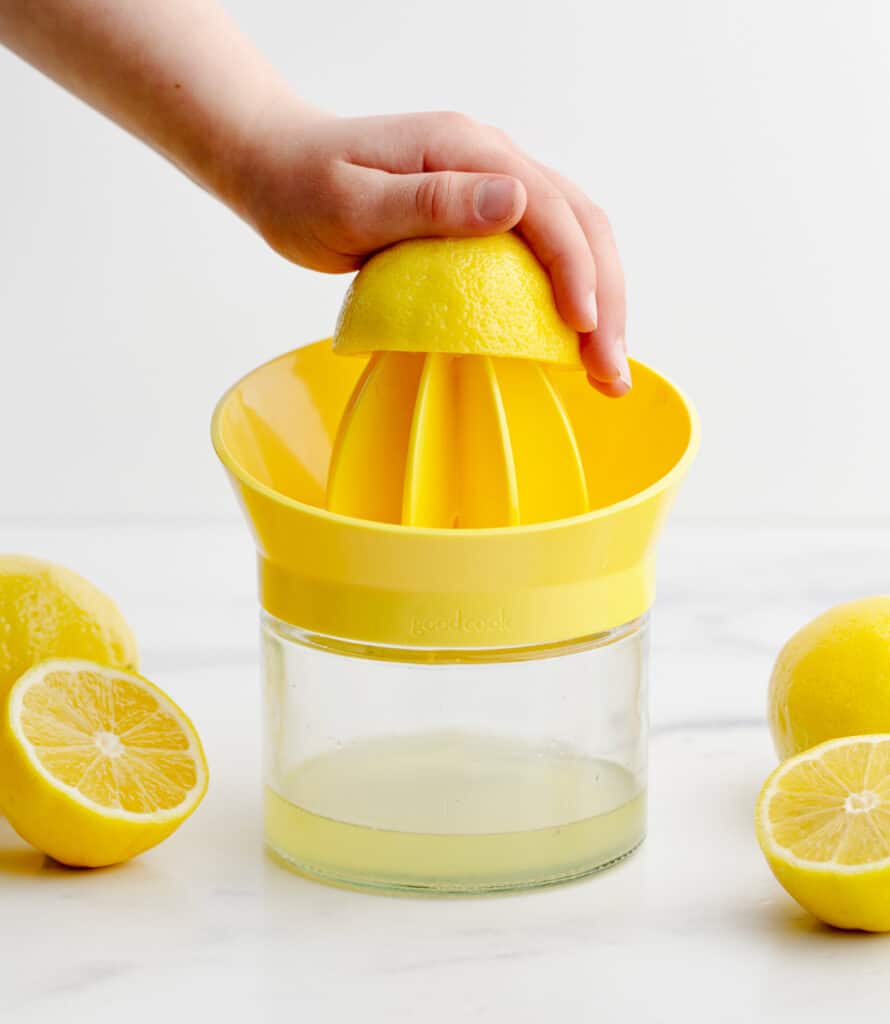
Tips for Juicing Lemons
If you’re looking to maximize the amount of juice you get from each lemon, here are some tips:
Store lemons at room temperature – cold temperatures can impact the juiciness of a lemon. If possible, store them at room temperature so that they retain their natural moisture content.
Roll the lemon before cutting – before cutting a lemon in half for juicing, roll it around with your hand against a hard surface (like your kitchen counter). This helps break down the fruit inside and makes it easier for the juices to flow when cut.
Microwave them briefly – if you don’t have time to let your lemons come up to room temperature naturally, microwave them for 10 seconds or so before cutting them open. Be sure not to leave them in too long, as this could cause them to dry out and become less juicy.
Use a citrus reamer or presser tool – cut your lemon in half and extract all its juice by hand, using either a citrus reamer or presser tool to squeeze out as much juice as possible.
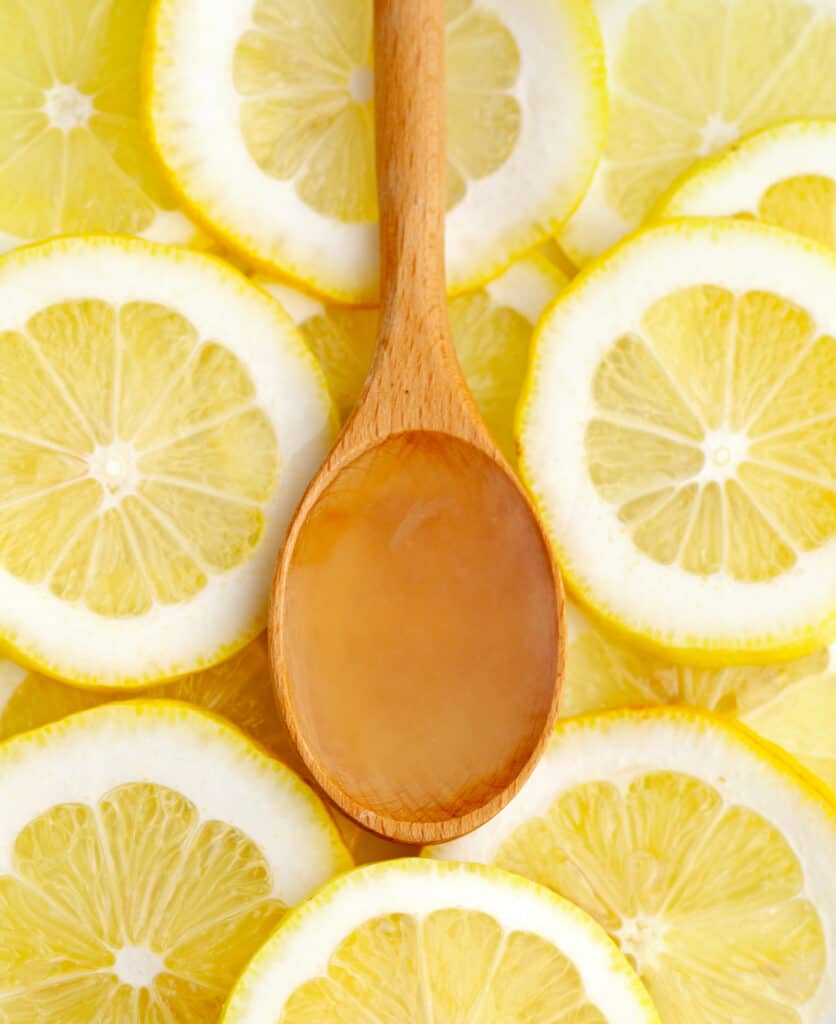
Ways to Use Lemon Juice
Lemon juice can be used in so many delicious ways, whether cooking a savory main dish or whipping up a sweet dessert or refreshing drink. Here are a few of our favorite ways to use lemon juice:
- Add a splash of freshly-squeezed lemon juice to your favorite salad dressing.
- Give grilled vegetables an extra zing by adding some lemon juice before serving.
- Squeeze lemon juice onto your shrimp or fish dishes.
- Use as part of a marinade to bring out the flavors in meats and poultry.
- Mix with melted butter, garlic, and parsley for an easy sauce to serve with pasta or seafood dishes.
- Make a citrusy vinaigrette by combining olive oil, lemon juice, and herbs.
- Mix powdered sugar and lemon juice to create a quick glaze for cakes, pastries, or other baked goods.
- Add a touch of freshness to ice cream or sorbets with some zesty lemon juice drizzled before serving.
- Balance out sweet recipes such as jams and desserts with some tartness from freshly-squeezed lemon juice added towards the end of cooking time.
- Infuse salads, sauces, and stews with flavor by adding a tablespoon of fresh lemon juice during the cooking process if desired – adjust amounts to suit your tastes.
- Use in mason jar infused water with other fruits and herbs.
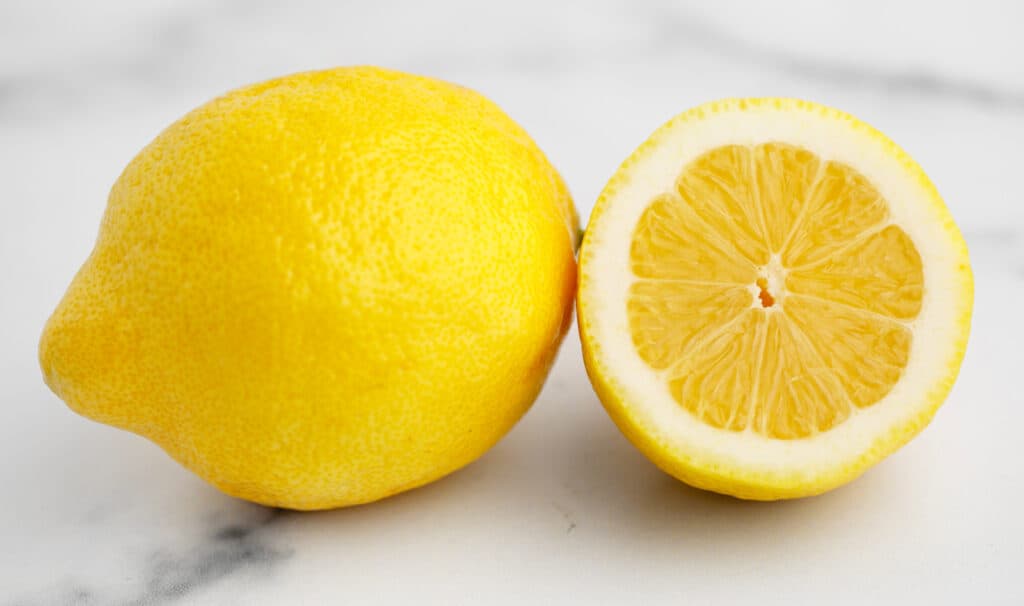
Frequently Asked Questions
Here are answers to common questions about lemon juice.
How much juice in one lemon in cups?
One lemon has about 1/4 cup of lemon juice (about 4 to 5 tablespoons). See our handy chart.
How much Vitamin C is in the juice of one lemon?
According to the USDA, the juice of one large lemon (weight of 3.5 ounces or 100 grams) contains approximately 32 to 43 milligrams of vitamin C. The amount of vitamin C varies between different varieties and sizes of lemons. Additionally, freshly-squeezed lemon juice may contain a higher vitamin C concentration than store-bought varieties.
How much Magnesium is in the juice of one lemon?
According to the USDA, the juice of one large lemon (weight of 3.5 ounces or 100 grams) contains approximately 3 to 8 milligrams of Magnesium. The amount of Magnesium varies between different varieties and sizes of lemons. Additionally, freshly-squeezed lemon juice may contain a higher concentration than store-bought varieties.
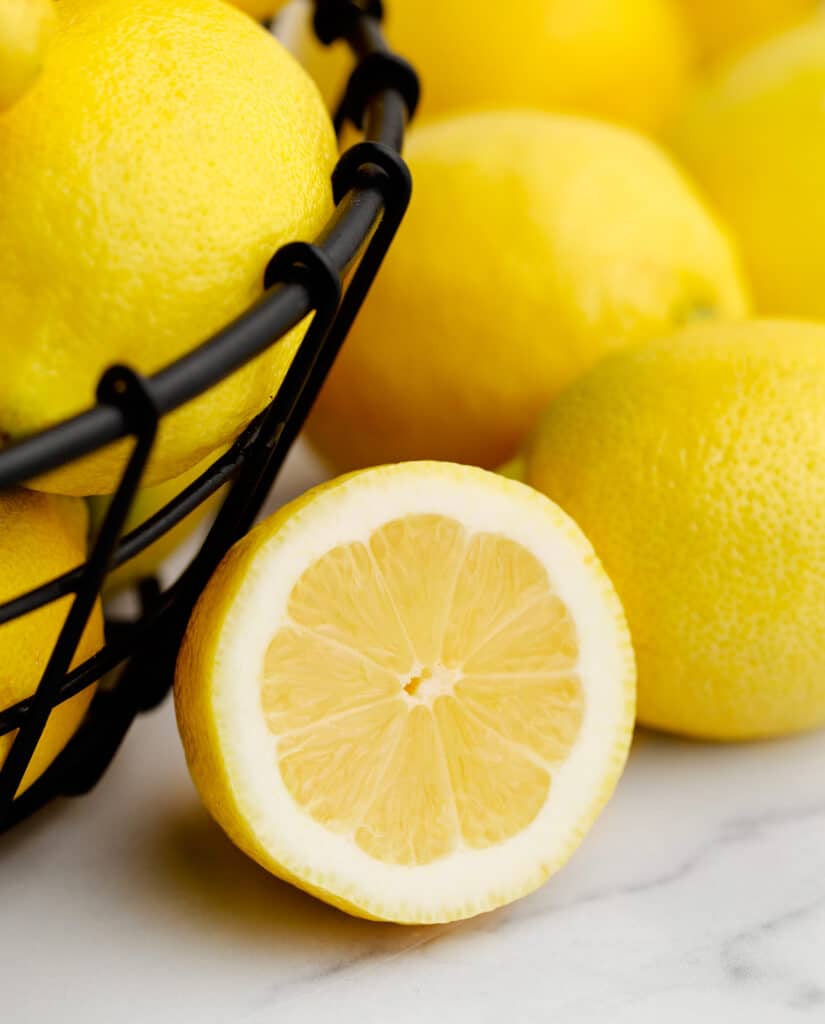
Final Thoughts
Fresh-squeezed lemon juice can make all the difference in your cooking and drinks. Not only does it taste better than store-bought varieties, but you’ll also get more nutritional benefits from squeezing your own lemons. Save this article and handy chart for the next time you need to know how much juice or zest is in one lemon.
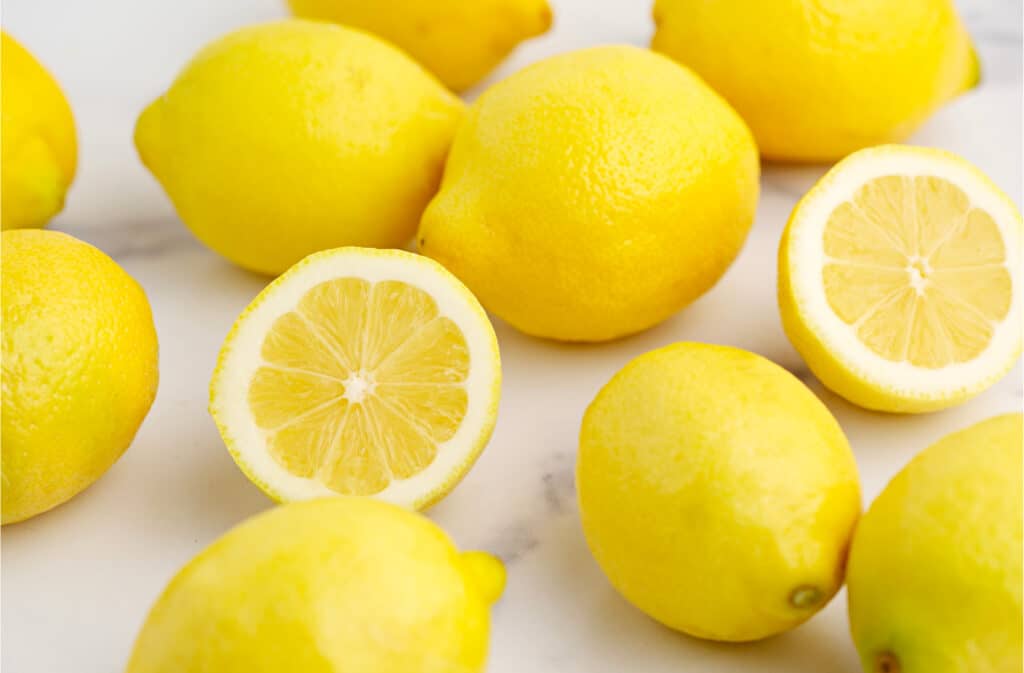
More Cooking Conversion Tips
- How much minced garlic in one clove?
- How many cups are in a quart, pint, or gallon?
- How many ounces are in a gallon?
Delicious Recipes to Try
- Infused Water with Fruit and Herbs
- Sauteed Garlic Lemon Shrimp
- Lemon Baked Trout Fillet
- Pico de Gallo with Fresh Lime
- Lemon Drop Shots
- How to Make a Lemon Twist
Pin for later
